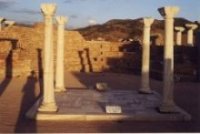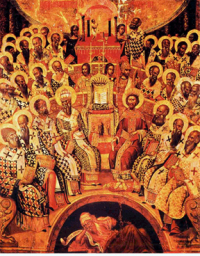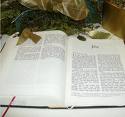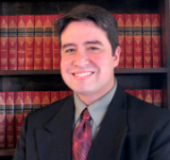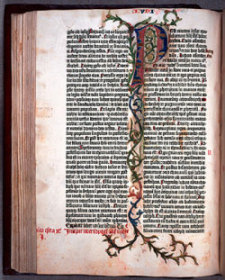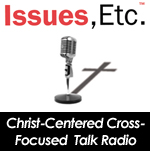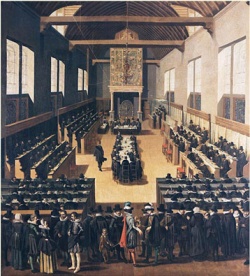 Article 10: Conversion as the Work of God
Article 10: Conversion as the Work of God
The fact that others who are called through the ministry of the gospel do come and are brought to conversion must not be credited to man, as though one distinguishes himself by free choice from others who are furnished with equal or sufficient grace for faith and conversion (as the proud heresy of Pelagius maintains). No, it must be credited to God: just as from eternity he chose his own in Christ, so within time he effectively calls them, grants them faith and repentance, and, having rescued them from the dominion of darkness, brings them into the kingdom of his Son, in order that they may declare the wonderful deeds of him who called them out of darkness into this marvelous light, and may boast not in themselves, but in the Lord, as apostolic words frequently testify in Scripture.
_________________________________
When it comes to the matter of people coming to faith in Christ, the Reformed place their confidence in the power of God, rather than in the natural ability of sinful men and women. It is quite appropriate at this point for the authors of the Canons to set forth the fact that conversion (which is defined as a person’s coming to faith, as well as the subsequent exercise of repentance) is not the work of the sinner, but is solely the work of God upon the sinner.
In this, we see yet again the Trinitarian emphasis of Reformed ordo salutis (order of salvation). The Father has chosen those whom he will save (redemption decreed). The Father has sent Jesus Christ to die on the cross as the satisfaction for the guilt of the sins of those that he has chosen (redemption accomplished). When the gospel is preached, those whom the Father has chosen, and for whom Christ has died, are effectually called to faith in Christ by the Holy Spirit (redemption applied).
As we have seen in the First Head of Doctrine (Article Five), this is the pattern laid out for us by the Apostle Paul in the opening chapter of his letter to the Ephesians (1:3-14):
3 Blessed be the God and Father of our Lord Jesus Christ, who has blessed us in Christ with every spiritual blessing in the heavenly places, 4 even as he chose us in him before the foundation of the world, that we should be holy and blameless before him. In love 5 he predestined us for adoption as sons through Jesus Christ, according to the purpose of his will, 6 to the praise of his glorious grace, with which he has blessed us in the Beloved. 7 In him we have redemption through his blood, the forgiveness of our trespasses, according to the riches of his grace, 8 which he lavished upon us, in all wisdom and insight 9 making known to us the mystery of his will, according to his purpose, which he set forth in Christ 10 as a plan for the fullness of time, to unite all things in him, things in heaven and things on earth. 11 In him we have obtained an inheritance, having been predestined according to the purpose of him who works all things according to the counsel of his will, 12 so that we who were the first to hope in Christ might be to the praise of his glory. 13 In him you also, when you heard the word of truth, the gospel of your salvation, and believed in him, were sealed with the promised Holy Spirit, 14 who is the guarantee of our inheritance until we acquire possession of it, to the praise of his glory.
Paul is very clear that election was “in Christ” before the foundation of the world (1:4). Such election is based solely upon God’s own pleasure and purpose (1:9, 11). The Apostle also points out in verse 7, that Jesus Christ came in history to accomplish what was necessary for our redemption, namely the forgiveness of the guilt of our sins through the shedding of his blood. And then in verse 13, Paul points out that the believer was included in Christ, “when you heard the word of truth.” Here, Paul is speaking about the time of conversion. Redemption must not only be decreed in eternity and accomplished during Christ’s messianic mission, but such redemption must be applied at the moment in time when we believe (conversion). Paul plainly attributes such conversion to the work of the Holy Spirit.
Article Ten of the Canons simply restates what has already been said repeatedly throughout the earlier heads of doctrine, namely "the fact that others who are called through the ministry of the gospel do come and are brought to conversion must not be credited to man, as though one distinguishes himself by free choice from others who are furnished with equal or sufficient grace for faith and conversion (as the proud heresy of Pelagius maintains)."
As we have seen, the fallen human will is held captive to both the darkened understanding of the mind as well as sinful desires of the flesh. While able to make choices (an essential part of what it means to be human) we must ask, “what choices will such a fallen will make when enslaved to sinful desires and passions, and unable to discern or understand spiritual things?” The answer is simple–anything but Christ. A bad tree bears only bad fruit. A sinner who can do nothing to save themselves, will quite naturally hate a holy Savior who holds their fate in his hands.
It is positively unbiblical to speak of conversion as the work of the sinner (i.e, the making of a choice, the exercise of the will,etc.), when it is clear that conversion is the work of God the Holy Spirit, applying the saving benefits of Jesus Christ to God’s elect, who now in turn embrace the gospel and trust in Jesus Christ for the forgiveness of their sins and the gift of eternal life. Those who believe, do so only because God has effectually called them through the gospel, and not because they supposedly used their free or natural ability to believe and come to the savior. This is the heresy of the Pelagians and the Canons rightly call out those who still champion this ancient error.
It is clear that “salvation is of the Lord”–a point which the Canons clearly make, when they state, “No, it must be credited to God: just as from eternity he chose his own in Christ, so within time he effectively calls them, grants them faith and repentance, and, having rescued them from the dominion of darkness, brings them into the kingdom of his Son, in order that they may declare the wonderful deeds of him who called them out of darkness into this marvelous light, and may boast not in themselves, but in the Lord, as apostolic words frequently testify in Scripture.”
This is what distinguishes Reformed theology from all other systems of Christian theology (even other Augustinian varieties such as Lutheranism). In every case, the Scriptures declare (and the Canons reiterate this over and over again), that the saving operations of God are not directed to “the world” generically, or to people impersonally as nameless, faceless, individuals. The Scriptures know not of a people for whom God provides a “potential” salvation, and for whom God does nothing to actually save the individual sinner, except to provide them with a means to save themselves, if only they will.
This is the fatal biblical weakness in all forms of universalism. In every case, the Bible teaches that the saving actions of God are directed effectually to specific individuals that God intends to save. The Scripture teaches that the shepherd knows his sheep, and that they know him.
 Tuesday, March 17, 2009 at 01:42PM
Tuesday, March 17, 2009 at 01:42PM 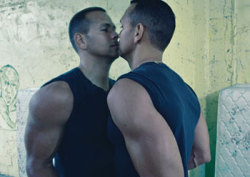
 Baseball
Baseball 


